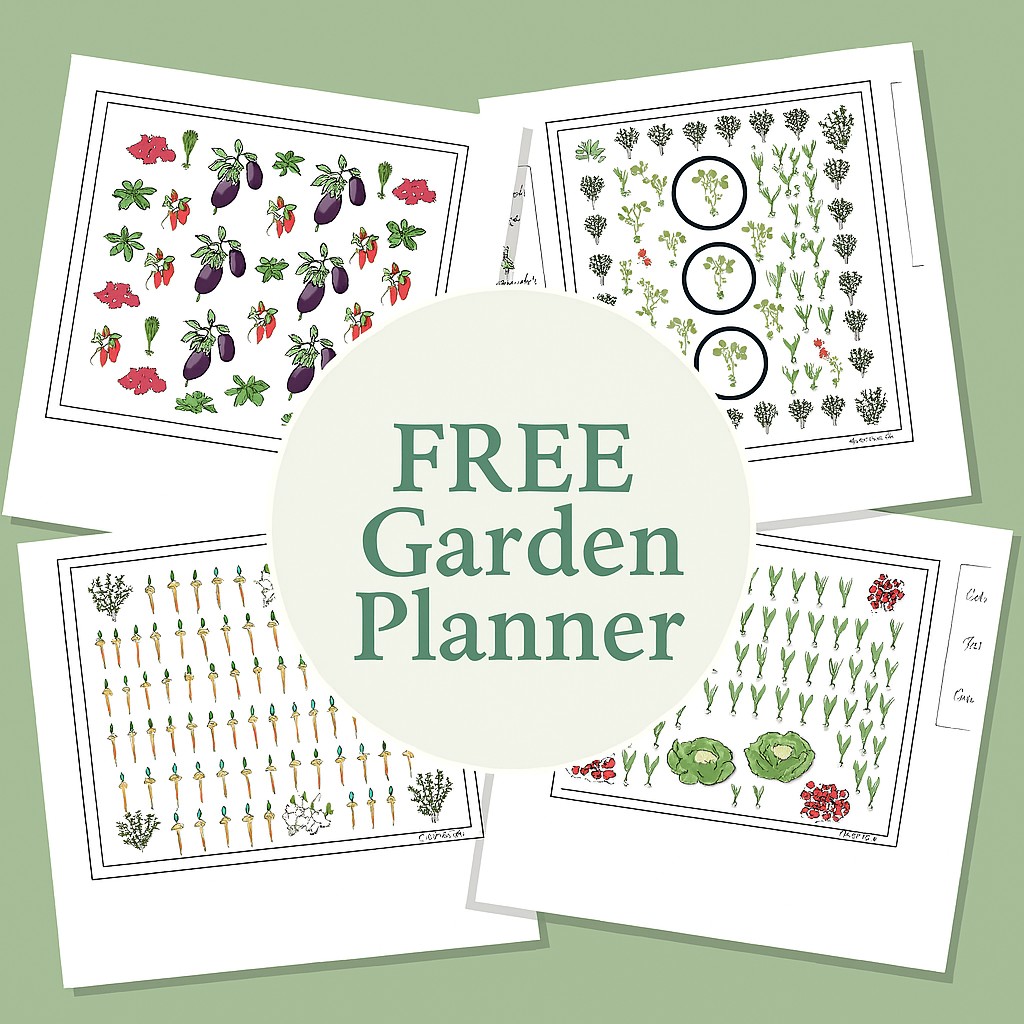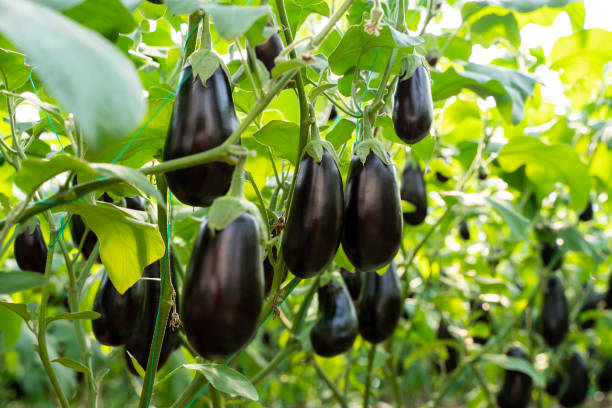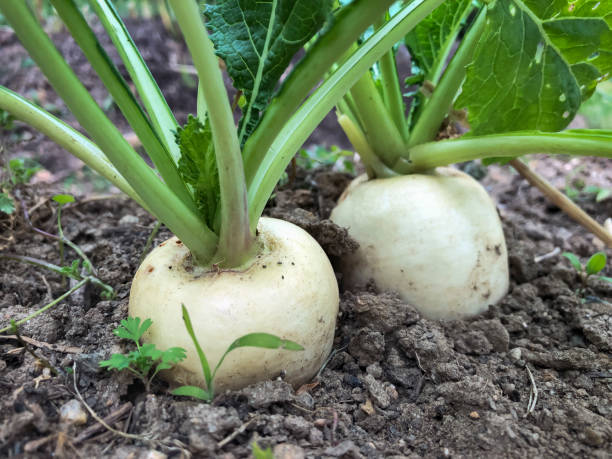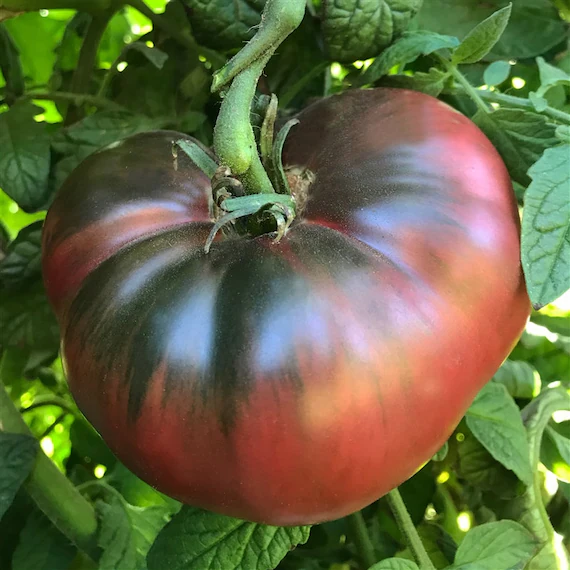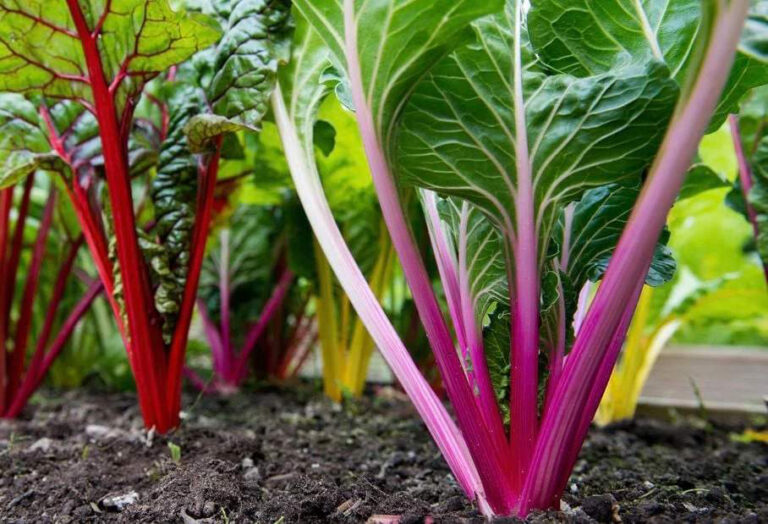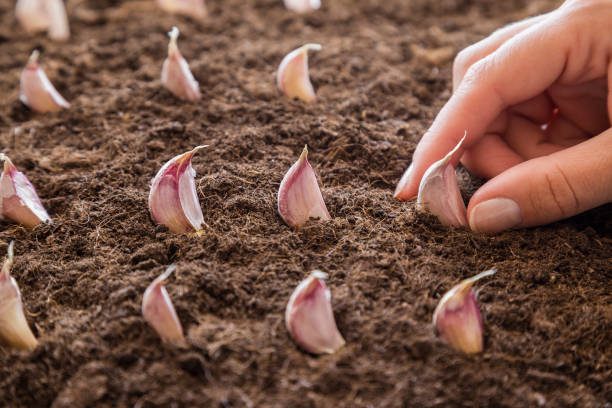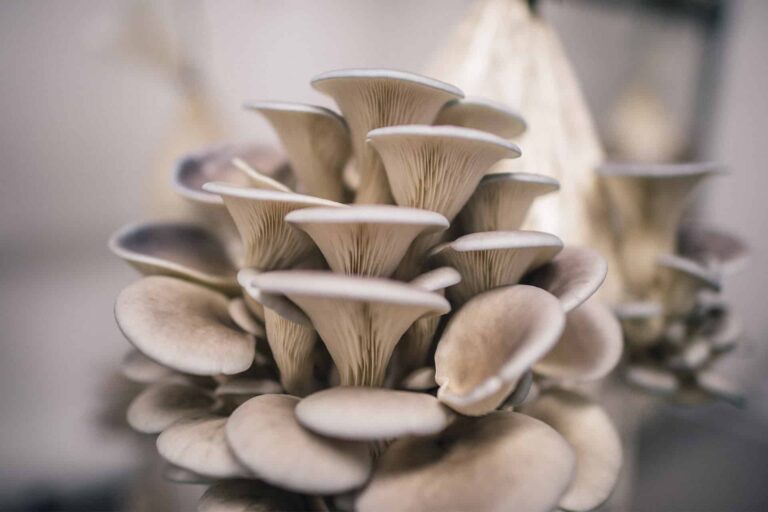How to Grow Eggplants: A Comprehensive Step-by-Step Guide
Eggplants, also known as aubergines, are versatile and delicious vegetables that thrive in warm climates.
These vibrant vegetables are a staple in many cuisines worldwide, from Mediterranean dishes to Asian curries.

Whether you want to grow them in your backyard, a container, or a greenhouse, this guide will help you cultivate healthy, productive plants from start to harvest.
Choosing the Right Variety

Eggplants come in various shapes, sizes, and colors, offering plenty of choices for gardeners.
Classic Varieties
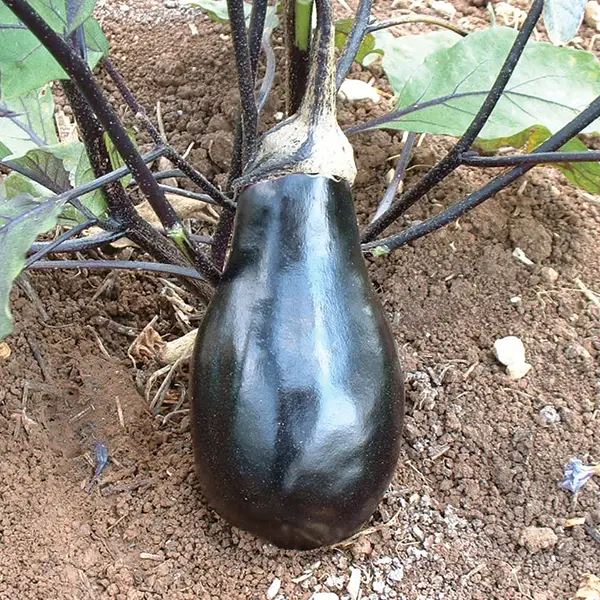
Traditional purple varieties, such as ‘Black Beauty’ or ‘Florida Market,’ are widely known for their rich flavor and adaptability. These are ideal for most gardens and provide a bountiful harvest.
Compact Varieties
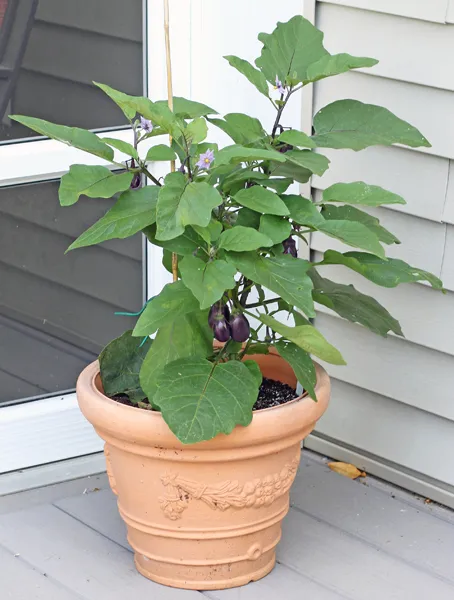
If you’re limited on space, compact varieties like ‘Patio Baby’ or ‘Fairy Tale’ are perfect for container gardening. These smaller plants produce plenty of fruit without requiring a large growing area.
Heirloom Varieties
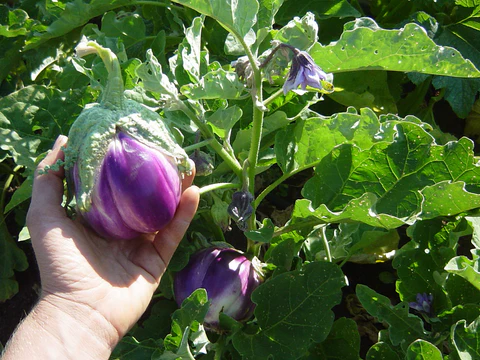
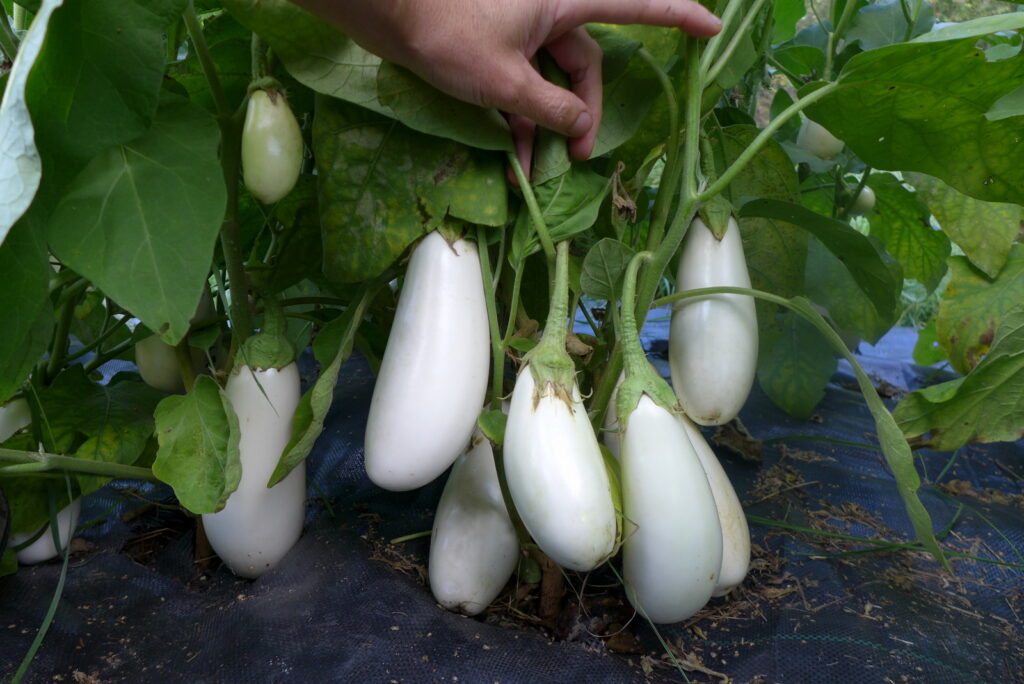
Heirloom varieties, such as the striped ‘Rosa Bianca’ or white-skinned ‘Casper,’ offer unique flavors, colors, and textures. These are excellent for gardeners looking to experiment with something different.
Planting Timing and Preparation
Eggplants are warm-season crops that thrive in sunlight and warmth. Proper planning is crucial for a successful harvest.
Understanding Growing Zones
Your growing zone significantly influences when and how you should plant eggplants. In cooler regions, it’s essential to start seeds indoors to extend the growing season.
- Zones 3-7: Start seeds indoors 8-10 weeks before the last frost date, typically in late winter or early spring (January-March). Transplant outdoors once the soil temperature reaches at least 60°F.
- Zones 8-11: Start seeds indoors in late winter or plant directly outdoors as early as February or March, depending on frost dates and local conditions.
Seed Starting
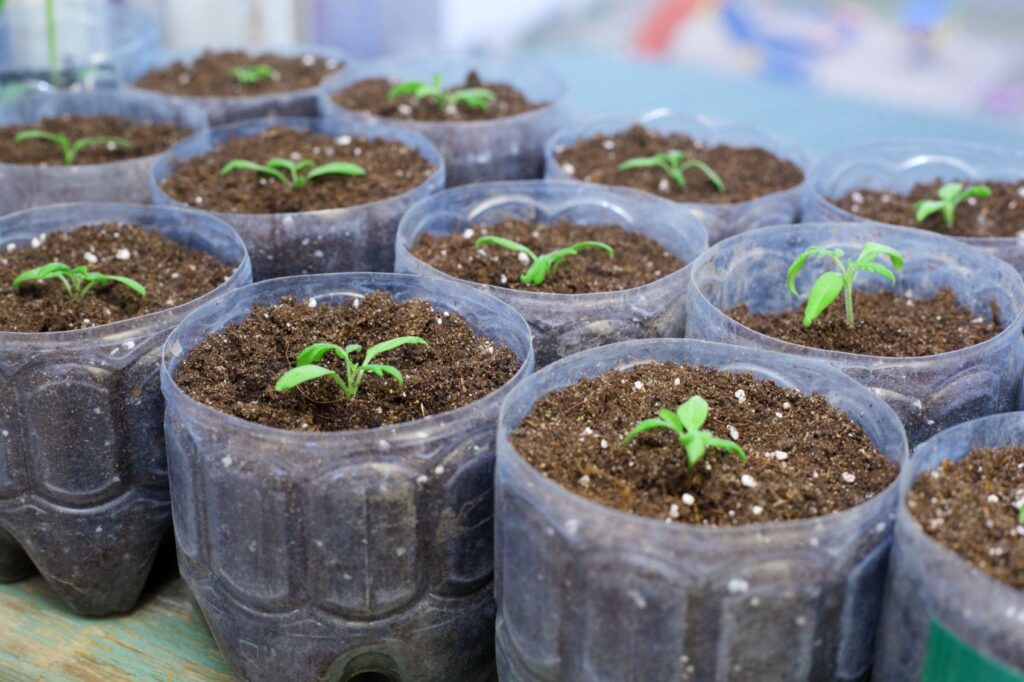
Starting seeds indoors allows you to give eggplants the warmth they need to germinate successfully.
- Seed Trays: Sow seeds in trays or small pots filled with a high-quality seed-starting mix.
- Temperature: Maintain soil temperatures between 75°-85°F (24°-29°C) using a heating mat if necessary.
- Lighting: Place trays in a well-lit area or use grow lights to prevent seedlings from becoming leggy.
- Moisture: Keep the soil evenly moist but not soggy. Thin seedlings to one per pot once they develop their first true leaves.
| Growing Zone | Seed Starting Time | Transplant Time |
|---|---|---|
| Zones 3-7 | 8-10 weeks before last frost | After last frost, soil 60°F |
| Zones 8-11 | Late winter (January-February) | February-March |
Transplanting Eggplants
When your seedlings are 4-6 inches tall and have at least two sets of true leaves, they’re ready to move outdoors.
Hardening Off
Gradually acclimate seedlings to outdoor conditions by placing them outside for a few hours each day over a week. Increase their exposure gradually to reduce transplant shock.
Proper Spacing
Eggplants need room to grow and thrive. Space plants 18-24 inches apart in rows 24-36 inches apart. For container growing, use pots with at least a 5-gallon capacity to allow proper root development.
Ideal Growing Conditions

Eggplants are sensitive to environmental conditions, and meeting their needs is crucial for a successful crop.
Sunlight
Eggplants require full sun to produce abundant fruit. Ensure they receive at least 6-8 hours of direct sunlight daily.
Soil Requirements
Plant eggplants in well-draining, fertile soil with a slightly acidic pH of 5.8-6.5. Enhance soil fertility by adding compost or aged manure before planting.
Temperature Control
Eggplants thrive in warm conditions. Use row covers or black plastic mulch to retain soil warmth, especially in cooler regions. Protect plants from sudden temperature drops.
Caring for Eggplants
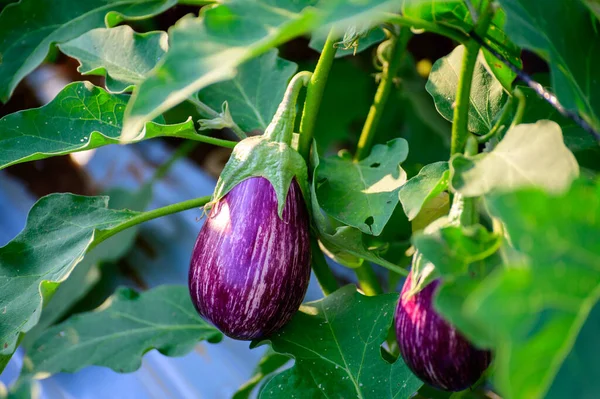
Once planted, consistent care ensures healthy growth and a productive harvest.
Watering
Eggplants need 1-2 inches of water per week. Water deeply and consistently, keeping the soil evenly moist but not waterlogged. Mulching around the base helps retain moisture and reduces weeds.
Fertilizing
Feed plants with a balanced fertilizer during planting and again when flowers and fruits develop. Potassium-rich fertilizers are particularly beneficial for eggplants.
Pruning and Support
Remove suckers (unnecessary side shoots) to direct energy toward fruit production. Use stakes or cages to support plants, especially larger varieties, to prevent damage from heavy fruit.
Pest and Disease Management
Eggplants are prone to pests and diseases, so proactive measures are essential.
Common Pests
The most common pests include flea beetles, aphids, and spider mites. Inspect plants regularly and treat infestations with insecticidal soap or neem oil.
Disease Prevention
Prevent fungal diseases like blight by ensuring good air circulation around plants. Avoid overhead watering, which can promote fungal growth.
Companion Planting
Plant eggplants alongside marigolds, basil, or garlic to naturally deter pests and enhance plant health.
Harvesting Eggplants
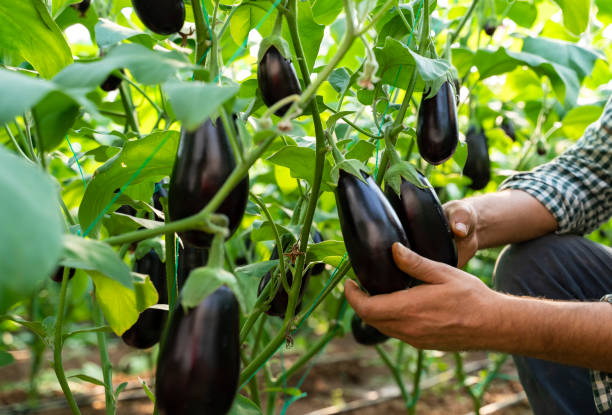
Harvesting eggplants at the right time ensures the best flavor and texture.
When to Harvest
Eggplants are ready to harvest 65-80 days after transplanting, depending on the variety. Pick fruits when they are glossy and firm but before their skin becomes dull or their seeds harden.
How to Harvest
Use pruning shears or a sharp knife to cut the fruit, leaving a small portion of the stem attached. Avoid pulling or twisting fruits to prevent damaging the plant.
Post-Harvest Tips
Proper storage and handling preserve the freshness and flavor of your eggplants. Store harvested fruits in a cool, humid place and use them within a week for optimal quality.
Eggplants are incredibly versatile in the kitchen. Grill, bake, roast, or add them to stews and curries for delicious meals.
Final Thoughts
Growing eggplants is a rewarding experience for gardeners of all levels. By providing the right conditions and care, you can enjoy a plentiful harvest of this nutritious and versatile vegetable.
Whether you’re growing them for their unique flavors or as a staple crop, eggplants bring beauty and bounty to your garden. Happy gardening!
